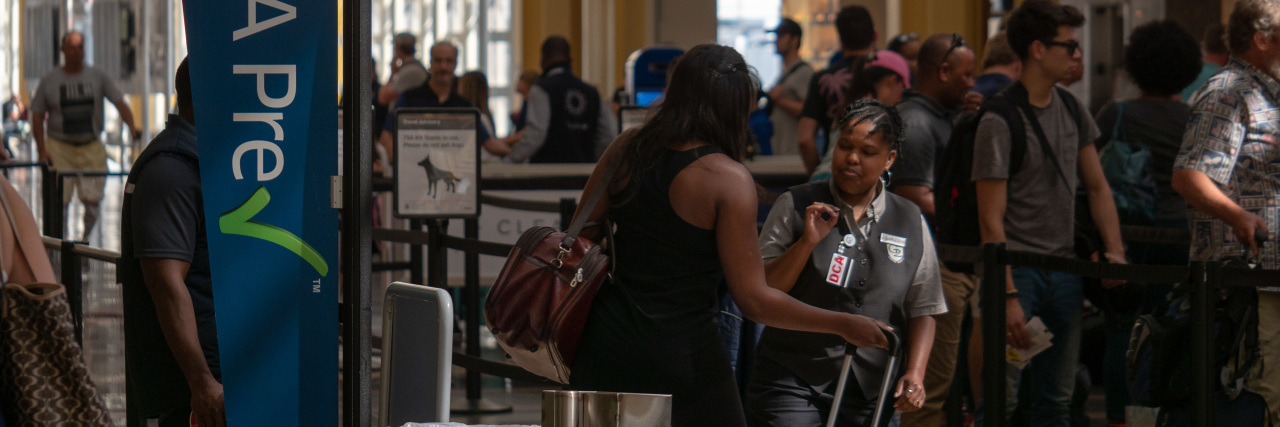As more and more people get vaccinated against COVID-19, it seems likely that more people will travel this summer for work, to see loved ones and to go on vacation. The Centers for Disease Control and Prevention currently recommends that vaccinated people can resume traveling domestically and internationally without getting tested for COVID-19 or self-quarantine before or after travel.
For disabled people who will be traveling by plane, the process of getting through the Transportation Security Administration (TSA) at the airport may be easier too. Disability Scoop reported on Tuesday that TSA “is set to start implementing new staff training and screening procedures to better serve individuals with disabilities as they make their way through airports across the country.”
Its officers will be trained starting in early May to “recognize designations on driver’s licenses and other state identification cards” which would highlight if a person has a disability that may lead to them having problems with communication. In a letter to Michigan U.S. Representative Dan Kildee on these updates, Darby LaJoye, a senior official of TSA, explained that the TSA engages with the Disability and Medical Conditions Coalition on improving accessibility.
While this is an improvement to increase accessibility for some disabled travelers, there are other steps that need to be taken. This does not fall on just TSA — airlines need to step up to make traveling easier for the disability community. People with invisible illnesses and disabilities may have their accommodations denied or judged because they may not look stereotypically disabled.
When Karina Strum, a woman with Ehlers-Danlos syndrome, asked if someone could help her with her bags after her flight landed, she was refused aid. “When the flight landed, I asked again if someone could assist me with my carry-on luggage and I, for the first time, experienced the ignorance of someone who was supposed to help without judging me,” she wrote at The Mighty. “When I asked a crew member to support me and lift my luggage for me, she told me if I was not able to lift my luggage by myself, I should leave it at home the next time.”
It is not acceptable as well that wheelchairs are not treated properly. A February 2019 report from the U.S. Transportation Department found that 26 wheelchairs or scoots were lost or damaged by U.S. airlines per day in 2018. While it is good that screenings may improve, a lot more needs to change to make traveling accessible for disabled people.
Image via Getty Images/David Tran

